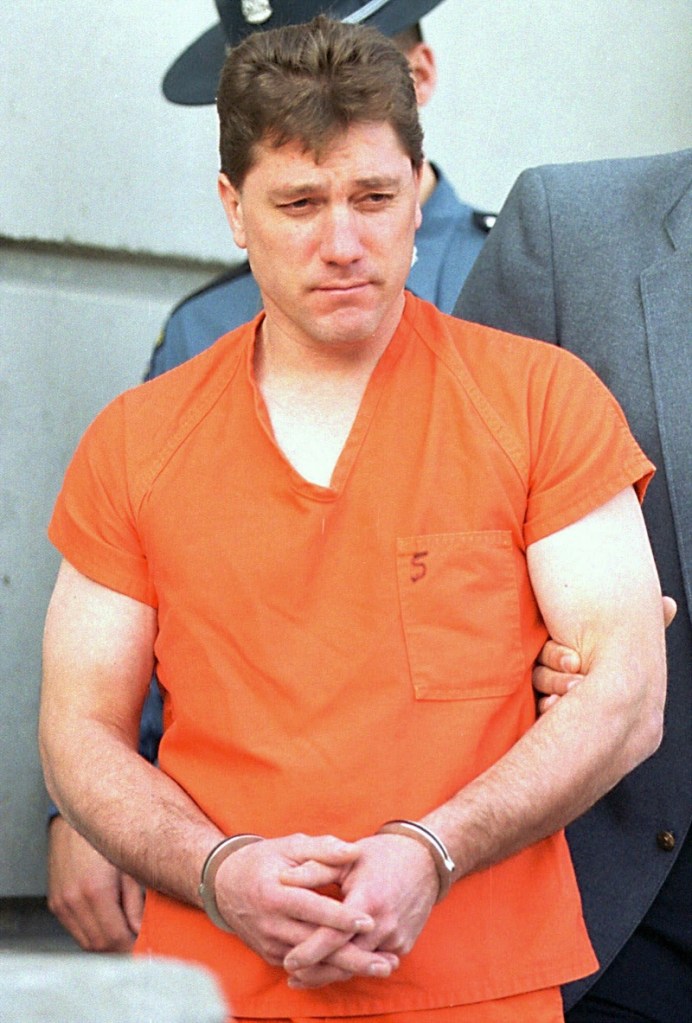PORTLAND — The lawyer for a Maine man serving two life sentences for the 1999 shooting deaths of his ex-girlfriend and the toddler she was baby-sitting told Maine’s highest court Wednesday that DNA tests could show somebody else might have committed the killings.
Richard Hartley asked Maine Supreme Judicial Court justices to overturn a lower court ruling denying his request for DNA testing on clothes worn by another man, David Vantol, who claimed responsibility for the killings but later recanted.
Hartley said the tests could show the victims’ DNA or blood on the clothes, which would benefit his client, 49-year-old Jeffrey Cookson, and cast a new light on his case. Cookson was convicted of killing 20-year-old Mindy Gould and 21-month-old Treven Cunningham in Dexter.
“If the DNA tests produced the victims’ DNA, Mr. Vantol’s DNA but not Mr. Cookson’s DNA, that’s an issue I imagine a fact-finder would be curious about and that would raise some eyebrows,” he said.
But Assistant Attorney General Donald Macomber said Cookson hadn’t met the burden of the law in proving the clothes hadn’t been contaminated or altered in the two years they were supposedly buried in the ground. He maintained that Cookson was rightly convicted of the crimes.
“The jury found the truth 12 years ago, that Jeffrey Cookson executed these two people,” he said.
Cookson was convicted in 2001 of shooting Gould and the young boy in the back of the head while they were lying face down in the bedroom.
Just minutes after the verdict, Vantol confessed to the murders. A short time later, he led police to a gun used in the killings.
Two days later, he gave investigators a trash bag with clothing items, a wig and a hat that he said he had worn during the killings and then buried, two years earlier.
He later changed his story and told investigators Cookson persuaded him to confess to the murders. Cookson in 2004 and 2008 sought to have DNA tests performed on the clothing.
A dozen family members and friends of the victims appeared at Wednesday’s hearing to uphold their vow to appear at every hearing connected to the case until its conclusion, said Arthur Jette, Treven’s grandfather and the head of the Maine chapter of the Parents of Murdered Children support group.
Family members and friends have no doubt of Cookson’s guilty, he said. The killings took place a few days after Gould took out a protection-from-abuse order against Cookson, and Cookson had a history of abusive behavior and stalking Gould, he said.
“This was clearly a domestic homicide, and he was clearly the one from day one,” he said.
At Wednesday’s hearing, Macomber was asked why the state wouldn’t simply go ahead and conduct the DNA tests if they might shed new light on the case.
“What if there’s the victims’ blood on the clothes?” asked Justice Joseph Jabar. “And what if there’s the victims’ DNA is on the clothes? And what if Cookson’s DNA’s not on the clothes, but Vantol’s DNA is on the clothes?”
Macomber said Vantol changed his story repeatedly about whether he was involved in the killings and about the clothing.
“There was no evidence produced on even where those clothes came from,” he said.
Nobody answered the telephone Wednesday at a number listed in Vantol’s name in Bangor.
Send questions/comments to the editors.



Success. Please wait for the page to reload. If the page does not reload within 5 seconds, please refresh the page.
Enter your email and password to access comments.
Hi, to comment on stories you must . This profile is in addition to your subscription and website login.
Already have a commenting profile? .
Invalid username/password.
Please check your email to confirm and complete your registration.
Only subscribers are eligible to post comments. Please subscribe or login first for digital access. Here’s why.
Use the form below to reset your password. When you've submitted your account email, we will send an email with a reset code.